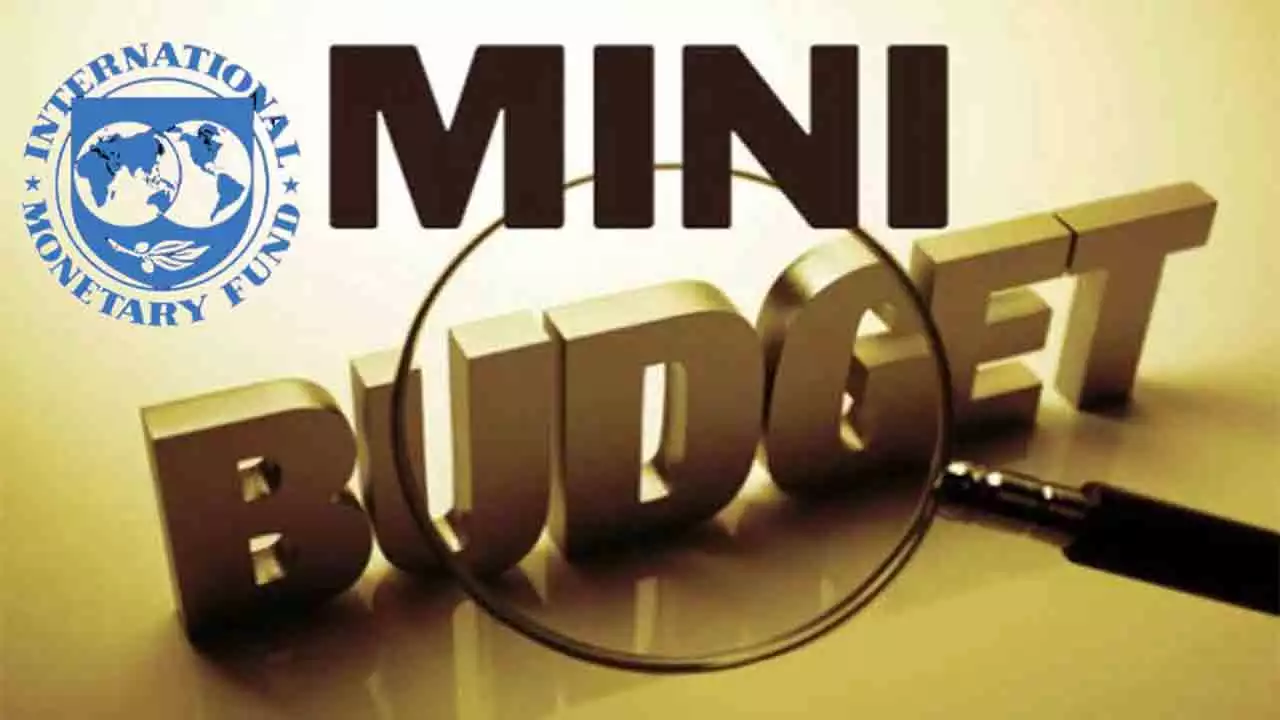In a recent development that has significant implications for Pakistan’s economy, the Federal Board of Revenue (FBR) learned that the International Monetary Fund (IMF) has declined its request to revise tax collection targets during virtual discussions. This decision has raised concerns about the impending shortfall in tax revenues, which could complicate the disbursement of the next tranche of IMF loans to Pakistan. The rejection underscores the IMF’s stringent stance on fiscal discipline and highlights the challenges faced by the Pakistani government in meeting its financial obligations.
The FBR, which is responsible for revenue collection in Pakistan, is now under pressure to address a projected revenue gap that could reach unprecedented levels. Reports indicate that the government is preparing to introduce a mini-budget estimated at 500 billion PKR to address the anticipated shortfall. This mini-budget would aim to implement measures that could bolster tax revenue in the short term, but it may also lead to increased financial strain on the economy and potentially unpopular austerity measures.
In conjunction with the proposed mini-budget, there are discussions surrounding the introduction of a 60 billion PKR ordinance aimed at enhancing the enforcement capabilities of the FBR. This ordinance would be critical for improving compliance and increasing tax collection efficiency, particularly in light of the IMF’s expectations for the Pakistani government to adhere to strict fiscal targets. The IMF has been vocal about its demand for improved revenue collection as a condition for continued financial support, and the pressure on the FBR is now palpable.
The IMF’s decision to reject the FBR’s request for a revision comes amid a backdrop of persistent fiscal challenges for Pakistan, which has struggled with low tax-to-GDP ratios and high levels of informal economic activity. The country has long faced criticism for its tax collection inefficiencies, which have hindered its ability to generate sufficient revenue to fund public services and reduce its reliance on external borrowing. The IMF’s insistence on fiscal discipline is part of a broader strategy to stabilize Pakistan’s economy and encourage sustainable growth.
To address these pressing issues, the FBR has implemented significant leadership changes aimed at enhancing its operational efficiency and meeting tax collection targets. Recently, eighteen officers, including four members of the board, have been removed from their positions as part of a broader restructuring initiative. This shake-up is intended to inject new energy into the FBR’s efforts to collect taxes more effectively and respond to the challenges posed by the IMF and domestic economic conditions.
Among the key personnel changes, Mir Badshah has been relieved of his duties in Inland Revenue Operations. His departure is seen as a critical step in the FBR’s attempt to revitalize its approach to tax collection. Tariq Arbab has also been reassigned from his role as Member Legal, while Hamid Atiq Sarwar has vacated his position as Member Inland Revenue Policy. These moves are part of a strategic effort to reinforce leadership within the FBR and facilitate a more proactive response to the challenges at hand.
The incoming leadership, particularly Rashid Mehmood Langriyal, is expected to bring a fresh perspective and renewed focus on enhancing tax compliance and addressing inefficiencies within the system. The FBR’s restructuring is aimed at not only improving revenue collection but also fostering a culture of accountability and performance within the organization. Furthermore, Najeeb Ahmed Memon has been appointed as the new Member of Inland Revenue Policy, taking over from Hamid Atiq Sarwar, and will be responsible for formulating strategies that align with the government’s fiscal goals.
The combination of the IMF’s rejection of the FBR’s request and the internal restructuring comes at a critical juncture for Pakistan. The government is faced with the dual challenge of meeting international financial obligations while also addressing domestic economic pressures. As the country grapples with rising inflation, currency depreciation, and growing public dissatisfaction, the need for a coherent fiscal strategy has never been more urgent.
Local economic analysts have expressed concern that the proposed mini-budget, while necessary to address the immediate revenue shortfall, could have adverse effects on the broader economy. The introduction of new taxes or increased levies on goods and services may lead to heightened public discontent, especially in a country where many citizens are already struggling with the rising cost of living. Moreover, there is a risk that such measures could stifle economic growth and discourage investment at a time when the country needs to foster a more conducive environment for business.
In light of the IMF’s insistence on maintaining strict fiscal discipline, the FBR must navigate a complex landscape of economic challenges while also adhering to the terms of its financial agreements. The continued support of the IMF is crucial for Pakistan, particularly as the country seeks to stabilize its economy and regain investor confidence. However, the path forward will require a delicate balance between implementing necessary reforms and ensuring that these reforms do not disproportionately impact the most vulnerable segments of society.
As the FBR moves forward with its restructuring and the proposed mini-budget, it will be essential for the government to communicate transparently with the public about the reasons for these changes and the expected outcomes. Engaging with citizens and stakeholders will be critical in fostering trust and ensuring that the measures taken are understood and accepted. In a climate of uncertainty, clear communication and accountability will be vital for maintaining public support for the government’s fiscal strategies.
The rejection of the FBR’s request for a revision of tax targets by the IMF has set the stage for a challenging period for Pakistan’s economy. The proposed mini-budget and changes in leadership within the FBR reflect the urgent need for effective tax collection and compliance measures. As Pakistan navigates these challenges, the focus must remain on achieving fiscal sustainability while also addressing the concerns and needs of its citizens. The road ahead will be complex, but with the right strategies and leadership, Pakistan can work towards a more stable economic future.



